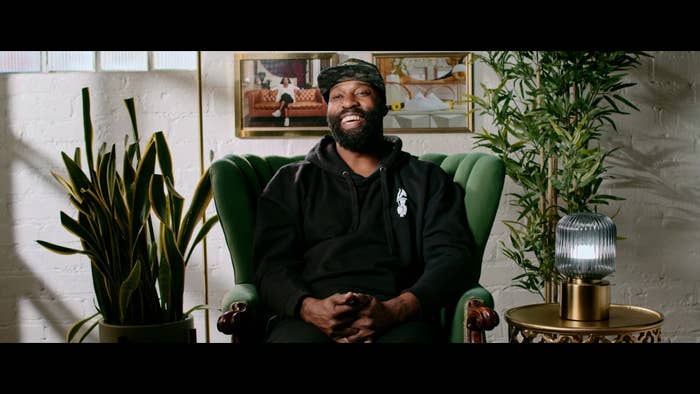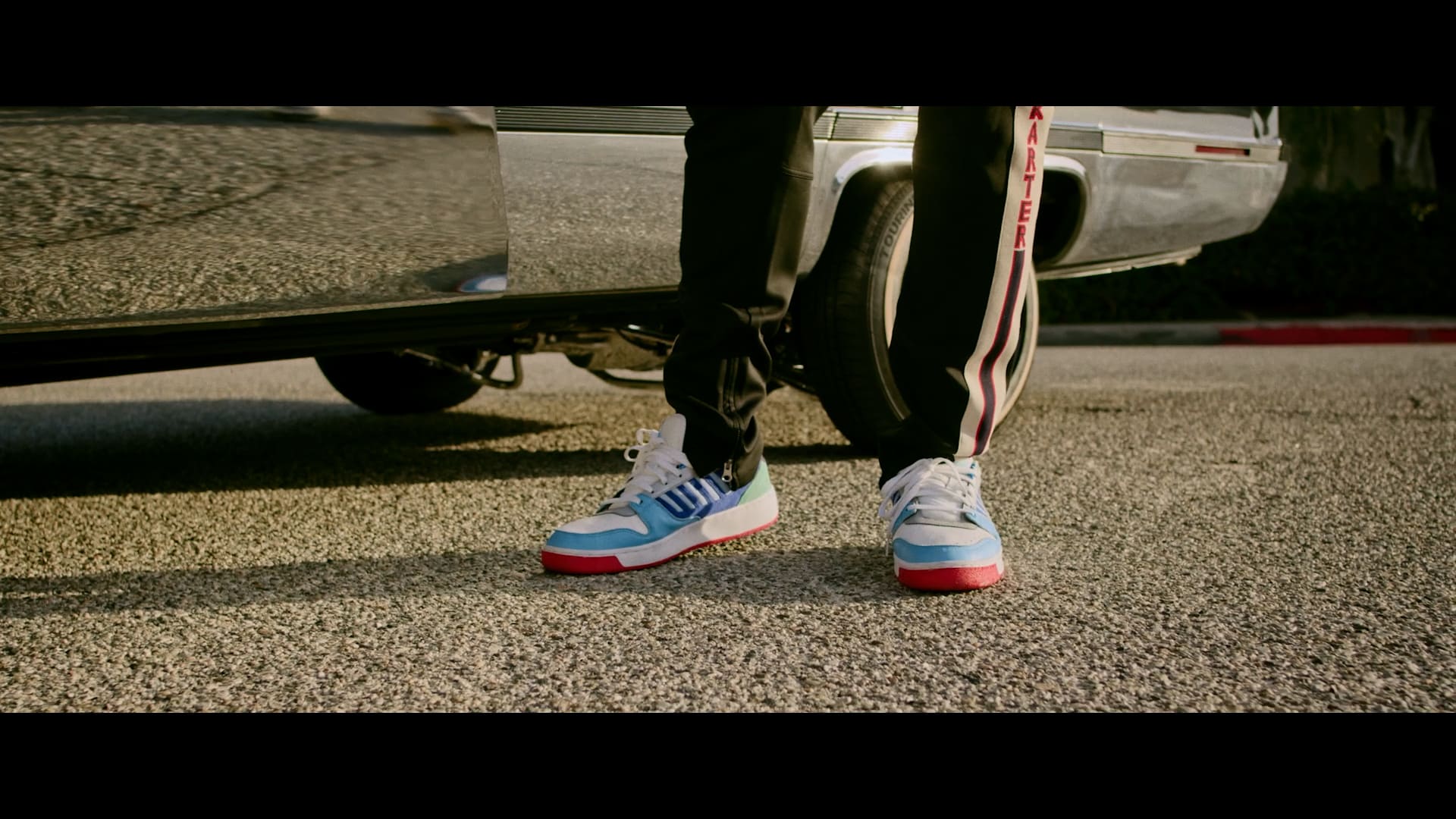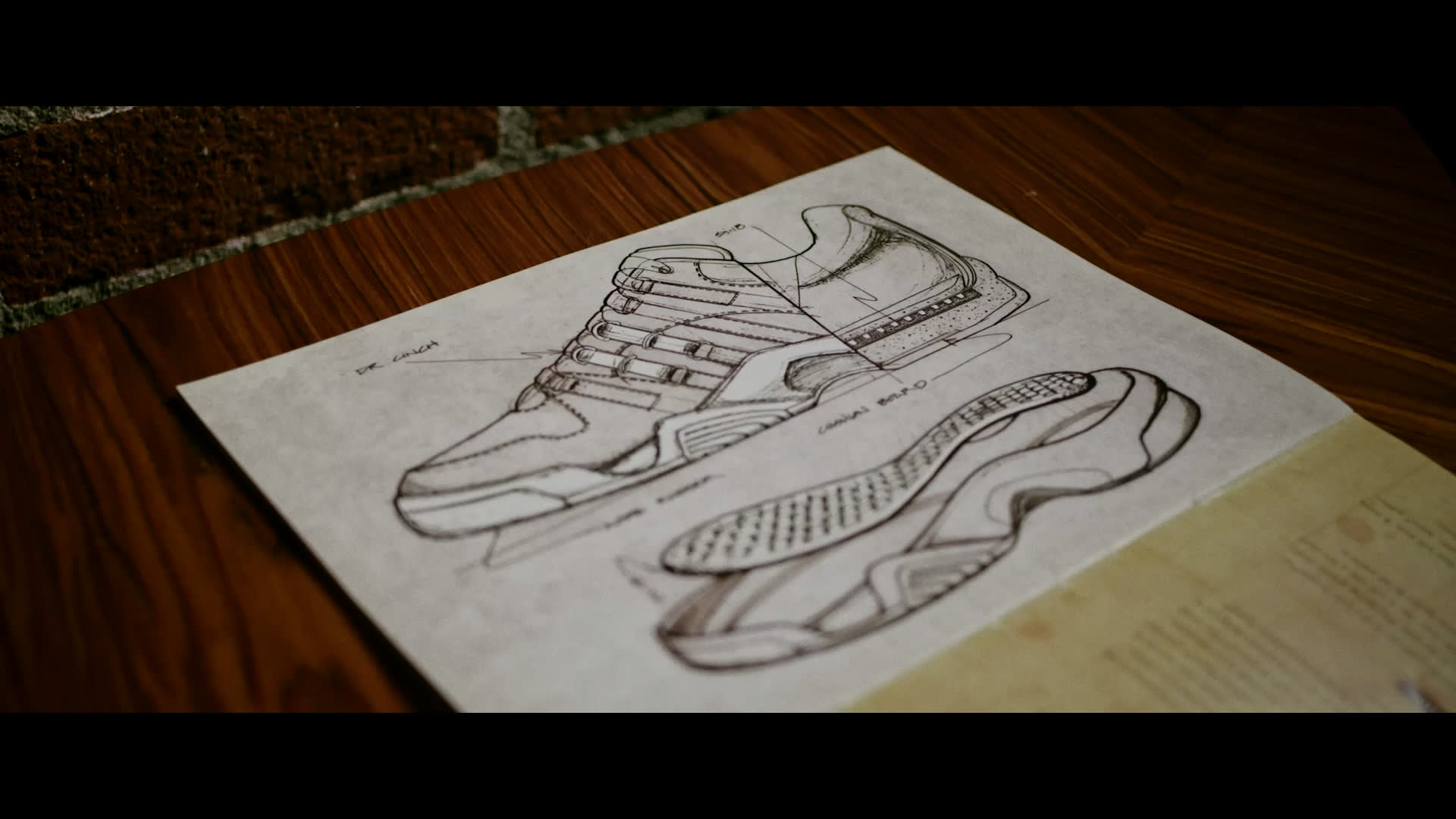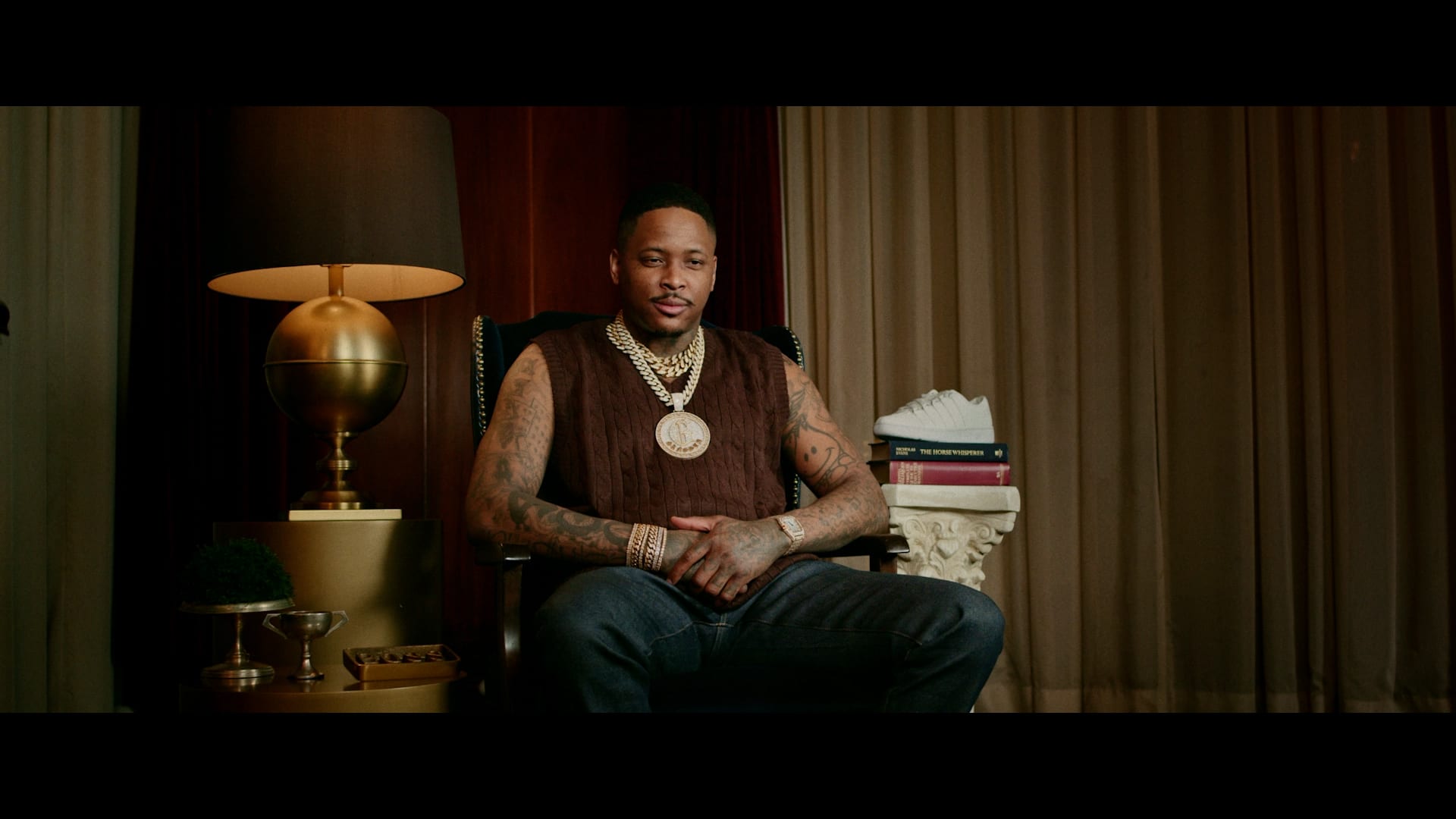Baron Davis is a two-time basketball All-Star, burgeoning businessman, and rising documentarian and filmmaker; but more importantly, he’s a California native who loves the city that birthed him. Growing up in South Central L.A., Davis didn’t have much. He didn’t have access to new jeans, fresh kicks, or a matching tee. What he did have were hand-me-downs, a basketball, and a desire not to be limited but inspired by his environment. Thankfully, Davis had a coach who was as invested in his off court growth as his on court play, and the point guard dribbled his way to early success while playing for the Amateur Athletic Union’s (AAU) K-Swiss Pacers. There, a young Davis found a place for his unique personality to thrive and form lifelong relationships with players that would eventually feel more like brothers.
Playing for the Pacers not only helped Davis sharpen his skills but also kept him laced with a fresh pair of K-Swiss every tournament. Those experiences with the team were integral to his evolution as both a player and person. Now, Davis is bringing his journey with the community-based brand full circle with his new documentary titled Dreamers and Doers: The History of K-Swiss in L.A., which tells the story of several Black creatives who dreamed big and did things even bigger. Before catching the full documentary above, check out the former pro baller explain how his story began, how he became a Los Angeles O.G., and why he’s committed to supporting Los Angeles’ next generation of Black excellence.
How impactful was your time on the K-Swiss Pacers on your life and career?
I would say it gave me an identity. Imagine a kid growing up in the hood—and that you’re just like everybody else—but there is a level of depth and darkness that makes you different from your upbringing, so you become super-insecure because of your family situation. And the only security you have is basketball. Being sponsored as a kid, [having a] free pair of shoes, is a lot.

What was it about being sponsored as a kid that made things so special?
Every time we had a tournament, our coach, Coach Thad, would give us new shoes. So, I had shoes to give to my homeboys. I became the golden child in the hood of have-nots. And when I got to the [K-Swiss] team, we were all have-nots. We had this kind of brotherhood because we all just came from something different. Everybody came from a different hood. Everybody had a brother or uncle or cousin who was in jail. I think the beauty of it is basketball saved our lives and changed [our] whole landscape.
K-Swiss did a lot to unify neighborhoods around Los Angeles and introduced you to a lot of young ball players who went on to go pro like yourself. Looking back now, did you and your AAU teammates ever have that, “Mama, we made it” moment?
We still communicate. We still stay in touch. We all hang, even the dudes who didn’t make it… I think the beauty of it is we didn’t even know what was happening at the time because we were kids. When we got to the league, other guys started coming into the league that were younger than myself and Paul [Pierce] and Milt Palacio. It was like, “Yo, I played on K-Swiss, too. I played on the Pacers, too.” We instantly became the OGs, the big brothers to a whole basketball community of underdogs because of the K-Swiss Pacers and the K-Swiss Squad. Having those uniforms, and sweats, and gym bags… it taught us a level of responsibility and professionalism.
For my basketball trajectory, it was just like I found a family, and it’s hard in L.A. to find a family outside of your home because you’re confined by the gangs and the colors that really align the borders of your neighborhood.

Outside of basketball, what do you think K-Swiss did for style in South Central when you were growing up?
K-Swiss is just a staple in the community. It was a vibe. K-Swiss was like a hybrid of [other shoes you saw in the community]. I wore my K-Swiss to church sometimes. You could get away with rocking your K-Swiss to church, and then rock the K-Swiss with [jeans] and cut them. You make the little pirate fringe at the end, throw your high socks up and you kind of got your vato or esse look. The gangsters had it. The skateboarders had it. The prepsters used it. I think at that point, people were creating styles to compliment their K-Swiss.
What effect do you think that classic L.A. style has on pop culture right now?
I mean, we are the epicenter. I think one thing about L.A. is when you take hip-hop and culture [and] basketball and football and music… it’s all here. Then you take fashion and it’s like we got our own style too. So for me, L.A. is like one of the cultural epicenters in cities that dictate what trends are happening in the marketplace.
You clearly have a long-standing relationship with K-Swiss. What made you decide right now was the time to bring things full circle and partner with them for this documentary?
Barney Waters [President of K-Swiss] and I got on a call and we were talking about K-Swiss’ initiative to highlight the voices of Black and Brown designers in Los Angeles. We were talking about conferences and giving kids opportunities to develop and co-develop with K-Swiss, so we can teach them the business side of the shoe industry. Then, I was like, “Yo, bro, do you know that I played for the original K-Swiss basketball team?” He was like, “What? Tell me more.” So I sent him the video and photos and he was like, “Yo, we got to make a documentary out of this.”

The concept of the documentary is “dreamers and doers.” What did you dream about as a kid that you’re actually seeing yourself do now?
The thing that I dreamed of as a kid that I’m doing now is writing and directing, and making material like music and art. As a kid I always wanted to build characters or create and tell stories. I would say that I’m actually creating and living in this fantasy world that I kind of had to live in as a kid to really block out all the noise that was happening around me. Outside of that, from a professional or selfish point, the most precious thing is that I saw myself as a dad. I have two incredible boys. I was raised in a house with all women, so every year I would make up an invisible brother, and now I got my crew. It’s the greatest accomplishment… just having a relationship with my two little whippersnappers.
You tapped a lot of young, Black, Los Angeles-bred talent to feature in this documentary, including YG. You’re said to be like an uncle to him. How did you guys meet and develop your relationship?
I’ve been messing with YG ever since he was a young rapper coming up—before “Toot It and Boot It.” I just became a fan, and anything that I can do to be a big brother or let him know, “This [is] your city now.” It’s [our] responsibility to build that brotherhood… I think people know YG, but they don’t really know YG. They don’t see him in the ’hood, but he’d be in the ’hood and they don’t see him giving away [to the community]. To watch somebody grow and evolve… it’s like, Come on, man. Get there and just keep going. I couldn’t be more proud. And to be able to work with him on this, it’s just the evolution of YG, his best is yet to come.

You’ve gone from basketball player to businessman. Do you have anything you want to develop to leave behind on that side?
On the business side, it was really doing the same thing. Touching entrepreneurs, investing in entrepreneurs that are here in L.A., investing in Black women, investing in Black companies and people of color. Ten years from now, when I look back, some of these companies are going to exit IPOs [initial public offerings], and we’re going to have a piece of the pie. I just want to see us be able to understand the language and the tools to build our own institution.
Do you have any long-term goals for the work you want to do in creating various documentaries? Any particular stories?
I just want to keep creating. I directed a movie. It’s called Domino: Battle of the Bones. That’s coming out June 11—across a hundred theaters, as of right now, in the U.S. including Los Angeles and Detroit. It’s kind of my hood comedy. We’re working on the animated [Black Santa] movie. I [want to] keep directing, keep writing, and just trying to put out good shit.

